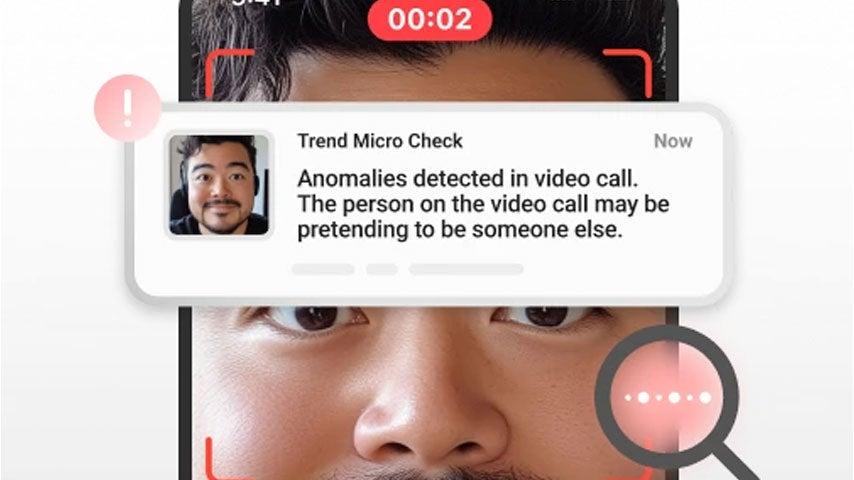
Related Topics
Just a few short years ago, artificial intelligence (AI) seemed like something straight out of a sci-fi movie. But with AI language models like ChatGPT, Google Gemini, and Microsoft Copilot, voice assistants like Alexa; and image recognition software like Google Lens, AI is no longer an abstract idea—it’s here.
Unfortunately, while AI has many positive uses, it’s also become a powerful tool for scammers.
What are AI scams?
AI scams use artificial intelligence tools to target consumers in very sophisticated and personalized ways. Unlike traditional scams, which tend to rely on generic or poorly executed tactics, AI allows criminals to create websites, emails, and impersonations that are startlingly authentic and believable. With AI, scammers can quickly launch fraud campaigns on a massive scale—or zero in on specific people using data gathered from social media or other platforms.
The speed and accuracy of AI-powered scams make them an increasing threat to consumers—especially as these technologies advance. Earlier this year, the Federal Bureau of Investigation (FBI) San Francisco division issued a warning that AI scams are on the rise. “As technology continues to evolve, so do cybercriminals' tactics,” said FBI Special Agent in Charge Robert Tripp in a press release.
Attackers are leveraging AI to craft highly convincing voice or video messages and emails to enable fraud schemes against individuals and businesses alike,” FBI's Tripp said.
For older adults, who are a common target for scammers, it’s important to stay vigilant and well-informed about AI scams.
How is AI used by scammers?
There are several ways scammers use AI to trick unsuspecting consumers.
Below are four of the latest AI scams:
- Voice cloning. AI can now clone a person's voice using just a short audio sample, making it possible for scammers to impersonate authority figures and even your loved ones. In one real-life case of an AI voice cloning scam, a Brooklyn woman received a call from what sounded like her in-laws, followed by a stranger claiming the couple was being held for ransom. The voices the woman heard sounded just like her relatives’, but in reality, they had been cloned by AI. Voice cloning is often used in scams where the criminal pretends to be a family member who is in trouble—or a trusted figure asking for urgent help.
A global McAfee study of 7,000 people found that one in four had encountered an AI voice scam or knew someone else who had. Ten percent of those surveyed said they'd received a message from an AI voice clone, with 77% of those people stating that as a result, they'd lost sums of money ranging from $500 to $15,000.1
Abhishek Karnik, McAfee's head of research, told WFSB Eyewitness News that to avoid voice scams, people should try calling back the person they think they're speaking to at their real phone number. Another tactic is to create a family "code word" that can be used to verify each other's identity during a call that seems suspicious. - Deepfake scams. Deepfake technology uses AI to generate convincing videos, photos, and audio clips that make it seem like someone said or did something they didn’t. Scammers use deepfakes to impersonate public figures, celebrities, institutions, and even our friends and family members in order to promote fraudulent products or persuade us to take certain actions. Filmmaker Jordan Peele illustrated the power (and danger) of AI deepfakes in 2018, when he applied his own facial movements to former President Barack Obama's likeness to create a fake video that went viral. Ironically, in the video, "Obama" warns us about the looming threat of fake news and misinformation.
Recently, the Federal Bureau of Investigation (FBI) warned of a scam where criminals take photos and videos from social media or other public websites and use AI to make fake "proof of life" images. The scammers then pretend they've kidnapped someone and send these altered photos or videos to family members while demanding ransom money. - Phishing email attacks. Phishing is an older online scam in which scammers use email and other methods to steal personal information—and AI has taken it to a whole new level of deception. An article from Harvard Business Review projects that AI technologies will drive a dramatic increase in the quality and quantity of phishing scams in the years to come. “With AI, scammers can generate very authentic phishing emails that bypass spam filters,” said Lynette Owens, VP of Global Consumer Education & Marketing at Trend Micro. “These emails often look like real account notifications or urgent requests from reputable companies. What’s more, their content is often very personalized. It uses information collected from online sources to make the message seem like it’s written specifically for the recipient.”
- Fake websites. In cryptocurrency scams and other AI scams, criminals send phishing emails or set up online ads promoting high-return investment opportunities or prize giveaways. These ads lead to fake, AI-generated websites that look nearly identical to legitimate ones. When visitors arrive, they’re persuaded to enter their personal information, leading to identity theft or financial fraud. Often, the sites are so realistic, many victims don’t realize they’ve been scammed until it’s too late.
What are some red flags associated with AI scams?
How can you avoid being scammed by AI? While AI scams are advancing at a rapid clip, there are some common red flags to watch for:
- Unusual requests for personal information: Be cautious if someone contacts you out of the blue and asks for sensitive details, like your Social Security number or bank account information.
- Outdated content: Many AI tools and bots are trained on limited data sets, which causes them to generate text that contains stale information.
- Unnatural language: Technology that uses generative AI often produces language that sounds generic or just slightly "off." You might notice things like odd paragraph structures, nonsensical sentences, and repetitive use of certain words and phrases (e.g., "delve," or "vital").
- High-pressure pitches: Fraudulent ads and scam emails are designed to create a sense of urgency, pressuring you to make quick decisions without thinking it through.
- Requests for payment in unconventional forms: Be suspicious if someone asks for payment in gift cards, cryptocurrency, or wire transfers. These payment methods are usually untraceable, which is why they’re often used by scammers.
- Visual or audio inconsistencies: Look for subtle oddities in language, tone, or visual quality that may point to the use of deepfake technology—especially in videos, phone calls, and recorded messages.
How can I protect myself from AI scams?
The tips below can help you stay safe in the age of AI scams:
- Stay up to date: Knowledge is your best defense against AI trickery. Learn about the latest online scams and techniques fraudsters are using, especially as this technology continues to develop.
- Verify the source: Always double-check the legitimacy of a request or message—especially if you receive it unexpectedly or it seems unusual. If someone claims to be a relative or authority figure, confirm their identity through another trusted means (e.g., by calling your relative’s cell phone directly).
- Use trusted security tools: In addition to antivirus software, consider using tools like Trend Micro Check, which helps protect against phishing scams, deepfakes, spam text messages, and more.
- Limit sharing your personal details online: Avoid oversharing on your social media pages or posting your personal data on public websites. Scammers are always watching, and they can use any information you provide to personalize their attacks.
- Sharpen your AI literacy: IBM SkillsBuild offers a free online AI course for beginners—no technical experience needed. You'll explore what AI is, how it's used, and where you may already encounter it in everyday life. By the end, you'll understand the basics of how AI works and feel more confident navigating today's digital world.
Signing up for this free, self-paced course is easy:- Visit the AI Literacy course page.
- Create a free account using your email or Google account.
- Click 'Enroll' and start learning at your own pace
Once you finish the course, you'll receive a digital credential you can use to showcase your new skills to potential employers.
What should I do if I suspect an AI scam?
If you think you’ve been targeted by an AI-powered scam, keep the following tips in mind:
- Don’t engage: Avoid immediately responding to or acting on suspicious requests. Resist the urge to click on links, open attachments, or call phone numbers. Instead, take a moment to think the situation through and verify sources and information. When in doubt, call someone you know and trust to explain what’s happening.
- Secure your accounts: If you’ve already provided information to a suspected fraudster, change all your passwords and monitor your financial accounts carefully for any unusual activity. You can also set up a fraud alert on your credit report, which makes it harder for scammers to set up new accounts in your name. For a more proactive approach: Consider freezing your credit at all three credit bureaus. This is a free option that can protect you right away, whereas fraud alerts are primarily reactive.
- Report the scam: Notify the Federal Trade Commission (FTC) about the suspected AI scam or call your local consumer protection agency. You can also contact the platform where the scam occurred.
You might also consider contacting Adult Protective Services in your area if you’ve been scammed. Find this information by calling the Eldercare Locator at 1-800-677-1116 or visiting its website.
With AI technology getting better every day, it’s critical to try to stay one step ahead of these schemes. By learning all you can about the latest AI scams, taking proactive steps to protect yourself, and sharing what you know with others, you can help beat scammers at their own game.
Sources
1. McAfee. AI Calling—Scammers turn to AI voice cloning tools for a new breed of scam. Found on the internet at https://www.mcafee.com/ai/news/ai-voice-scam/



